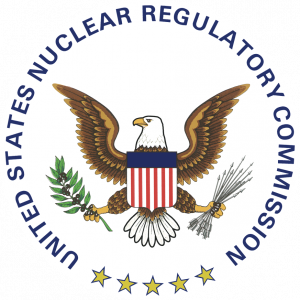
A bicameral group of Republican committee leaders in the U.S. House and Senate requested a congressional investigation of the Nuclear Regulatory Commission’s (NRC) planning, budgeting and financial management activities.
The inquiry follows unanimous House approval last month of the bipartisan Nuclear Utilization of Keynote Energy Act, H.R. 1320, sponsored by U.S. Rep. Adam Kinzinger (R-IL) to revise the NRC’s fee recovery structure and increase the transparency and efficiency of its regulatory processes.
The members also are following up on recent reports from the Government Accountability Office (GAO) that recommended action to improve processes for how the NRC sets fees and bills for them, among others. Specifically, the lawmakers requested that GAO conduct a review of NRC’s implementation of these recommendations.
“While NRC has launched some initiatives, it is unclear the extent to which NRC has completed these efforts and the extent to which these actions have resulted in the anticipated process improvements,” according to U.S. House Energy and Commerce Committee Chairman Greg Walden (R-OR); U.S. Rep. Fred Upton (R-MI), chairman of the House Energy and Commerce Subcommittee on Energy; U.S. Sen. John Barrasso (R-WY), chairman of the U.S. Senate Environment and Public Works Committee; and U.S. Sen. Shelley Moore Capito (R-WV), chairman of the Senate Environment and Public Works Subcommittee on Clean Air and Nuclear Safety.
The committee leaders voiced their concerns in an Oct. 9 letter sent to GAO Comptroller General Gene Dodaro requesting a review of recent NRC changes.
“To assist our assessment of NRC’s recent initiatives, we ask you to undertake a review of recent changes in its planning, budgeting, and financial management activities” and address issues such as to what extent the NRC has implemented the planned changes; how the NRC is assessing the subsequent results of implementing the changes; and how the results compare with the commission’s expectations, among other questions posed by the lawmakers in their letter.
The bicameral group also sent copies of the letter to their Democratic committee counterparts in the House and Senate.



